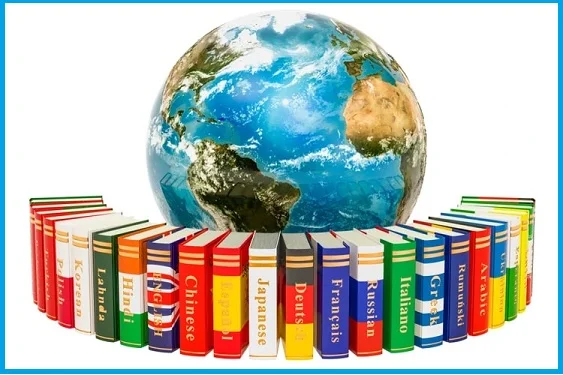The Best Languages to Learn in 2023 for Jobs and Business

Learning a new language is a great way to make friends with people from other countries, as well as increase your options for working and studying abroad. However, deciding on the proper language to learn may be difficult. These are the languages that will be most in-demand in 2023. Learning these language (s) will help you to witness growth in your career as well as business.
The Best Languages to Learn in 2023
The benefits of learning another language are undeniable. The grey matter in the brain grows as a result of bilingualism, enhancing cognitive abilities such as memory, judgement, and self-control. In addition to the physical advantages, multilingual tourists may more easily immerse themselves in the culture of the places they visit. To reap the rewards, you must learn a new language, but how do you choose?
You need to consider your hobbies, as well as your educational and career ambitions, while choosing a language. For those of you who are still unsure, we’ve put up a list of the best languages to study in 2023.
1. Chinese
Chinese on this list, as it is the most frequently spoken language in the world, spoken by 1.35 billion people. Despite the fact that there are several dialects of Chinese, all of which have a common writing system, mastering one of these dialects will help you converse with people who speak other dialects.
People who want to learn Chinese tend to choose Mandarin, which is the official language of China and a dialect of Chinese. You can communicate with individuals all across the world, especially those who work in China’s burgeoning economy if you learn Mandarin.
Choosing a good programme that provides ample opportunity for practice is essential for learning Chinese, which is regarded as one of the most difficult languages to master. Knowing Chinese is becoming increasingly important in the corporate world; thus, putting in the time and effort to do so is definitely worth it.
It is possible to open up a wide range of commercial and vacation prospects if you have some knowledge of Mandarin. Learning its tens of thousands of distinct characters is not easy, but it is sure to excite the mind of everyone who does!
2. Spanish
Spanish rates well on these kinds of rankings, and for a good reason. It is the official language of over 20 nations and the unofficial second language of the United States, where around 13% of the population speaks Spanish at home, with 493 million native speakers and over 592 million speakers in a total of the Spanish language worldwide.
The Internet is a treasure mine of additional Spanish materials that may be used for practice, even if you aren’t taking lessons in person. Netflix has a slew of Spanish-language programmes, like the popular favourite Money Heist, that is perfect for honing your comprehension abilities. Start with English subtitles and work your way up to watching without them as your skill improves.
3. French
It’s no surprise that French is the most extensively studied foreign language after English. French is the official language of 29 nations, including France and Canada, so you’ll be able to speak with the natives in Tunisia, Senegal, and Switzerland.
The French language is taught in every country on the planet, as there are more than 80 million native speakers. French is also considered one of the simplest to learn.
France’s language family includes languages such as French (a Romance language family) and Romanian (a Romance language family). If your objective is to become a polyglot, learning French might help you learn the other languages a little more easily (or even if you currently speak one of those languages).
4. German
English speakers may find German a bit more familiar than other languages, despite the fact that it is difficult. Because they belong to the same language family, this is the case. In addition to Germany, Austria, and Switzerland, it is widely spoken. The strict grammatical rules of German make it an excellent alternative for individuals who prefer formal languages.
English overtook German as “the language of science” after World War I. However, if you’re interested in science or academia, German is a worthwhile language to study because of its long tradition of scientific and intellectual literature.
Because German is the EU’s most frequently spoken the first language, travelling across the continent is a cinch. German is also a helpful business language due to Germany’s fourth-largest GDP and third-largest exporter status. Since its inception, German has been a dominant language in the fields of science, art, philosophy, and literature.
5. Russian
It might help your application if you’re interested in working for a government agency. Even if you have no plans to travel to any of these places, learning Russian can still be beneficial.
In addition to its rich literary heritage, Russia is home to some of the world’s most well-known literary figures, including Leo Tolstoy and Alexander Pushkin. With approximately 150 million native speakers, Russian is the seventh most widely spoken language in the world.
Russian is one of the most frequently spoken languages in and outside of Europe and is widely spoken in many former Soviet nations such as Ukraine, Georgia, and Tajikistan. In addition to English, it is the most widely spoken language on the Internet thus there are a wealth of online resources available to help you learn it.
Check: English speech topics
6. Japanese
Despite the fact that the majority of Japanese speakers live in the country itself, there are several benefits to learning the language. For starters, it’s a huge undertaking. One of the toughest languages to learn is Japanese, which has three writing systems, difficult grammar, and no linguistically-related languages.
Because of this, the work is worthwhile. In addition to its rich cultural heritage, Japan is a famous tourist destination, making it easy to stay motivated to learn the language by watching your favourite anime.
There are some of the world’s most inventive enterprises in Japan, which is the world’s third-biggest economy (by GDP). Because Japanese is the third most commonly spoken language on the Internet, you may do business from the comfort of your own home, no matter where you are on the globe. It is imperative that you master one of the primary languages of the Internet in order to stand out in today’s increasingly virtual business world.
7. Italian
As an English-speaking person wishing to learn a new language, Italian is the most accessible option. Many English and Italian words and sounds share a Latin root, which explains the similarity in their meanings.
In the United States, Italian is now the most popular high school and college language, outpacing both Spanish and German in terms of student enrolment. Since 2000, the number of Italian-speaking households in the United States has continuously decreased.
As one of the world’s leading economies and home to the world’s most culturally significant monuments, Italy is an ideal vacation destination for both professional and cultural exploration. Spending time in Italy will be richer and more memorable if you can communicate in your own language.
8. Korean
More than 80 million people throughout the world speak Korean, making it the world’s 18th most widely spoken language. The importance of Korea will only increase as the country’s political and cultural impact grows across the world.
South Korea is home to some of the world’s largest corporations, in addition to the cultural significance of K-pop and other Korean entertainment. Having a rudimentary knowledge of the language would definitely help people who want to boost their worth in the workplace or obtain a job in another country.
The ease and rationality with which one may learn Korean over Chinese are well-known as well. The letters of the Korean alphabet, known as Hangul, are all designed to be spoken as they are written. Written Korean is one of the simplest languages to learn to write in because of its logical approach.
9. Portuguese
It’s the fifth most widely spoken native language in the world, with about 274 million speakers worldwide. As a result, Portuguese is spoken in a number of African nations as well as South America and Europe; it is the official language in ten countries, including Angola and Guinea-Bissau.
Learning Portuguese is a great alternative for individuals who enjoy the arts as well as statistics. Bossa nova, samba, and funk carioca are just a few of the musical styles that may be traced back to Brazil.
10. Arabic
Arabic is a lovely language, but learning it is notoriously tough for people who use English as a first language. It’s partly because the dialects of Arabic vary so greatly from country to country. The United States considers Arabic to be a critical language. Knowledge of Arabic may lead to lucrative posts in and out of government because of its prominence in international politics.
Modern Standard Arabic (MSA), on the other hand, is taught in most courses. In order to converse with Arabic speakers from all around the Arab world, you will need to learn this standardised form of the language. MSA is widely used by governments, corporations, and media outlets all around the world.
However, if you have a specific Arabic-speaking nation in mind, you may also study the dialect to help you communicate with locals and make new acquaintances while on the road.




